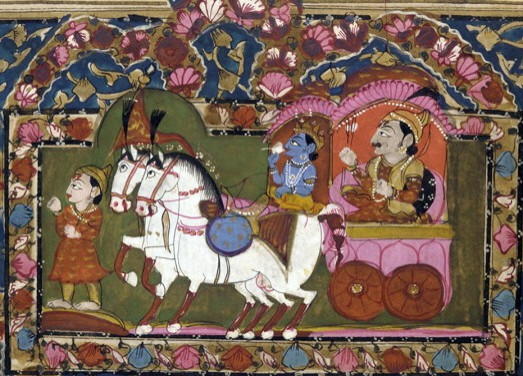Bhagvad Gita: Indian Hindus Outraged Over Russian Proposal to Ban Holy Book

Indian lawmakers have expressed their outrage and fury over reported plans by a Russian court to ban the Bhagavad Gita, the Hindu holy text and part of the Indian epic Mahabharata.
The matter has become so heated that members of parliament have actually adjourned their session in order to formerly protest to the Russian authorities. Protests have also taken place in front of Russian consulates in India.
Some MPs shouted in unison: We will not tolerate an insult to Lord Krishna.
Bhartruhari Mahtab, chief of the Biju Janata Dal party, addressed the parliament: I want to know from the [Indian] government what it is doing. The religious rights of Hindus in Russia should be protected. The government should impress upon the Russian authorities through diplomatic channels.
According to reports, prosecutors in the Russian city of Tomsk have proposed banning the Russian translation of Bhagavad Gita because they view it an ‘extremist’ religious document that they claim would create social discontent. They seek to have the book banned, in the same way that Adolph Hitler’s Mein Kampf is similarly prohibited.
The book is also central to the global Hare Krishna movement.
The Tomsk court will hold off on a ruling on the book until December 28 after it deliberates with experts and ombudsmen.
BBC reports that Russia recognizes freedom of religion for only its four largest faiths: Orthodox Christianity, Islam, Buddhism and Judaism (but not Hinduism).
According to India media, Indian residents of Moscow (of whom there are about 15000), have asked the New Delhi government to intervene diplomatically.
Meanwhile, the matter might present a thorn in the side of India-Russia relations, which have been very strong for years, Indeed, Prime Minister Manmohan Singh recently returned from his annual visit to Moscow.
© Copyright IBTimes 2025. All rights reserved.





















